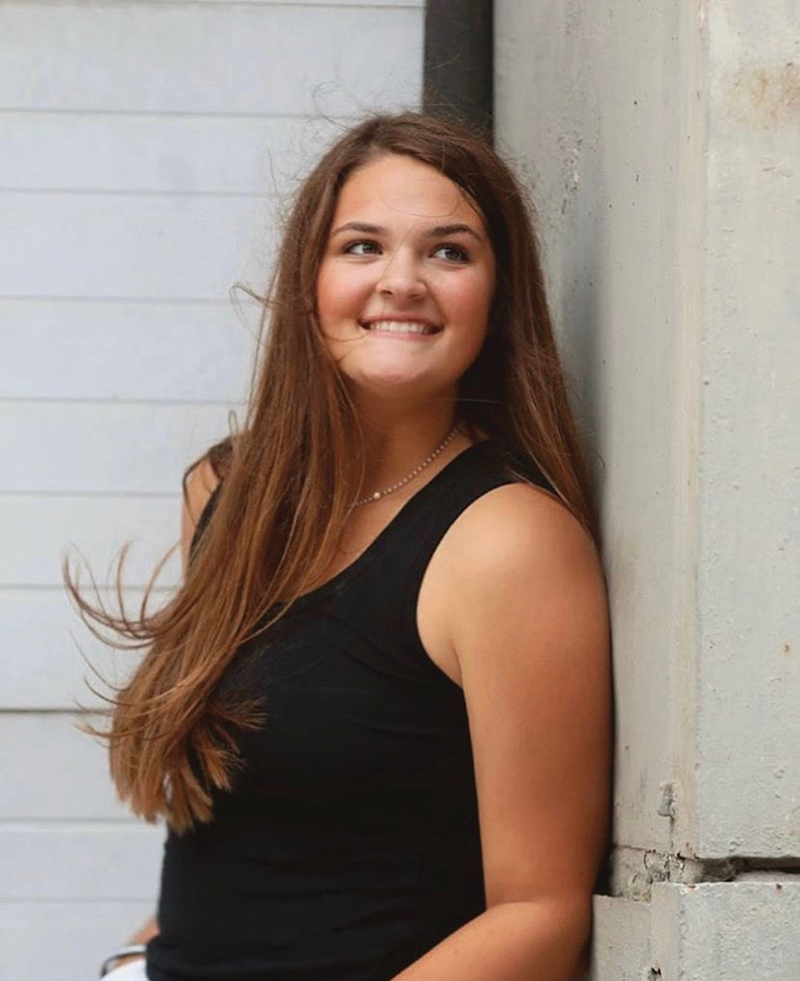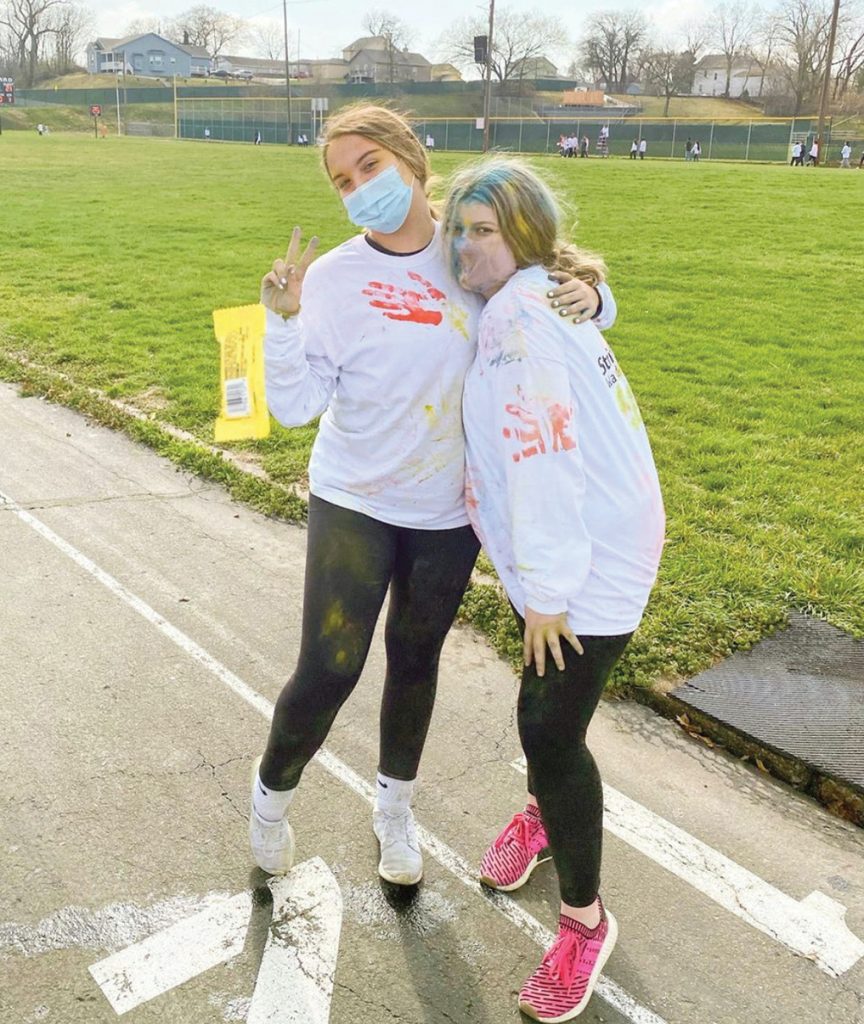
by Moira Cullings
moira.cullings@theleaven.org
KANSAS CITY, Kan. — Life’s messes are swept under the rug in the digital world of Instagram, according to three archdiocesan high school students here.
Celebrities, influencers and ordinary people pick and choose the photos and videos they share on the social media app, carefully orchestrating how their lives appear to the individuals scrolling behind the screen.
“People can depict their lives to [be] literally whatever they want,” said Anna Bartkoski, a senior at St. James Academy in Lenexa.
“So, comparison is really easy to fall into,” she said. “Perfect pictures are really hard to look at when you’re not feeling the best about yourself.”

According to documents obtained by the Wall Street Journal in September 2021, a three year study by Facebook, Instagram’s parent company, found that the social media app has harmful effects on many of its users, particularly teenage girls.
Its offerings often leave them struggling with mental health issues.
Three young, local Catholics shared their experiences with the app, which boasts more than one billion users.
Measuring up
Lizzie Weixeldorfer started using Instagram in sixth grade.
“I was into club sports,” she said, “so all of my teammates were creating these group chats on social media.”
Her parents allowed her to download the app so she didn’t miss out on the conversations among her friends.

Weixeldorfer is now a senior at Bishop Miege High School in Roeland Park and still uses Instagram primarily as a communication tool.
“I like to be connected to my friends and family,” she said. “I like seeing different accomplishments made by the people in my life.
“I do still fangirl a little bit over some of my favorite movie stars.”
Weixeldorfer said one adverse effect of the platform is the insecurities it often brings about among young people.
“More often than we think, those are a result from cyberbullying and negative commentary [online],” she said.
Hurtful comments, she explained, are often “not even [from] people you know, like your peers. This can be happening with anonymous people, too, which is the craziest part.”
Weixeldorfer said checking the app can become a mindless habit. She spends around two to three hours a day on the app.
“I’m scrolling through looking at what my friends are doing [and] what they’re saying,” she said.

Although she hasn’t personally experienced significant problems on social media, she knows people who have.
“I’ve had friends and other peers who’ve tried way too hard to appear a certain way online,” she said, “and who idolize influencers whose jobs are to literally look pretty in front of a camera.
“I can see how it would be harmful for a young girl to come across a model’s page and have the desire to ultimately look like one of them instead of being themselves.”

Weixeldorfer encourages young people to grow in confidence before venturing into the social media world.
“You have to have the mindset that God made you in his own image, his own likeness,” she said, “and you are who you are.
“If you go into all these different apps knowing that, I think it helps you take what you see [with] a grain of salt.”
‘Super-addicting’
Abby Hill, a senior at Bishop Ward High School in Kansas City, Kansas, was 11 years old when she created her Instagram account.
“I use Instagram for communication with my friends and family,” she said. “I also use Instagram to keep up with trends — whether it’s inspiration for outfits, hair, etc.”
Hill said the app keeps her updated on world news and current social issues.

Spending anywhere from one to five hours daily on Instagram, she’s experienced its positive and negative features.
“Some of the negative parts of Instagram circle around influencers that embellish their lives — whether it’s about the preferred body [type], a lavish lifestyle [or] flaunting success,” she said.
Hill said apps like Instagram are “super-addicting.”
“There are so many different kinds of posts that are posted to Instagram every day,” she explained, “which means Instagram never gets boring.”
And when it comes to celebrity accounts, the content is often fine-tuned.
“Many influencers post unrealistic ‘ideal’ body pictures,” said Hill, “which can be very harmful to young women who may believe that is how they are supposed to look.”

Hill said seeing people debunk influencer accounts by showing how they use Photoshop to manipulate their photos is refreshing.
She believes that knowledge can be helpful for all young people.
And faith, she said, also has a hand in making the digital world a more positive place.
“Faith can play a huge part in how you portray and respect yourself as an individual. . . . Faith teaches us to respect and love our bodies,” she said.
Hill encourages young girls to be themselves online and recognize their own beauty.
Overcoming the downfalls
Bartkoski started using Instagram in seventh grade.
“I think it’s fun to see different life updates from people I haven’t talked to in a while, and see what people are up to,” she said. “There’s a lot of people who I used to know from middle school that I stay in touch with.”
A few years ago, Bartkoski noticed she was spending too much time on the app.
“I think the more you use it, the more impactful it becomes in your life,” she said.
So, she set a time limit on her phone that allows her to stay on social media for just 30 minutes every day.
“These social media platforms are created to keep you on them as long as they can,” she said. “Setting timers and screen time limits can definitely help.”

When it comes to the studies on Instagram’s harmful effects on teen girls, Bartkoski isn’t surprised.
“I think a downfall is that people get to depict what they want their lives to look like,” she said. “So often, that [becomes] people making their lives look perfect when they’re actually not.”
Bartkoski encourages other young people to set time limits on their phones so they don’t spend all their free time online.
“I also think really reinforcing the fact that your dignity comes from God and not from what other people think and say is really important,” she said.






